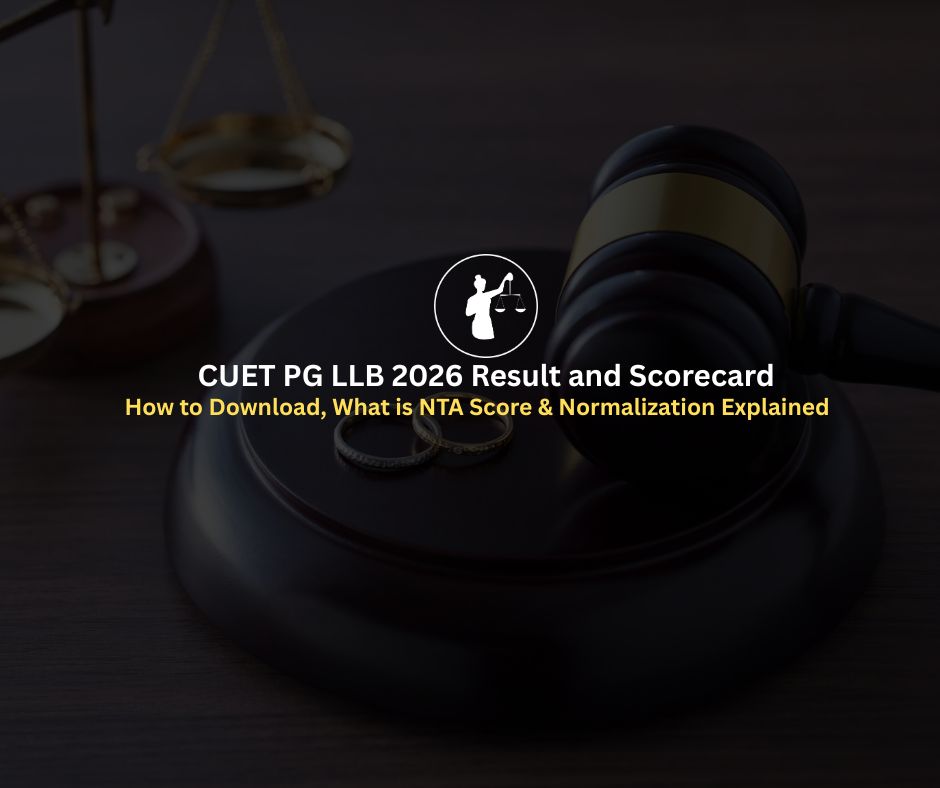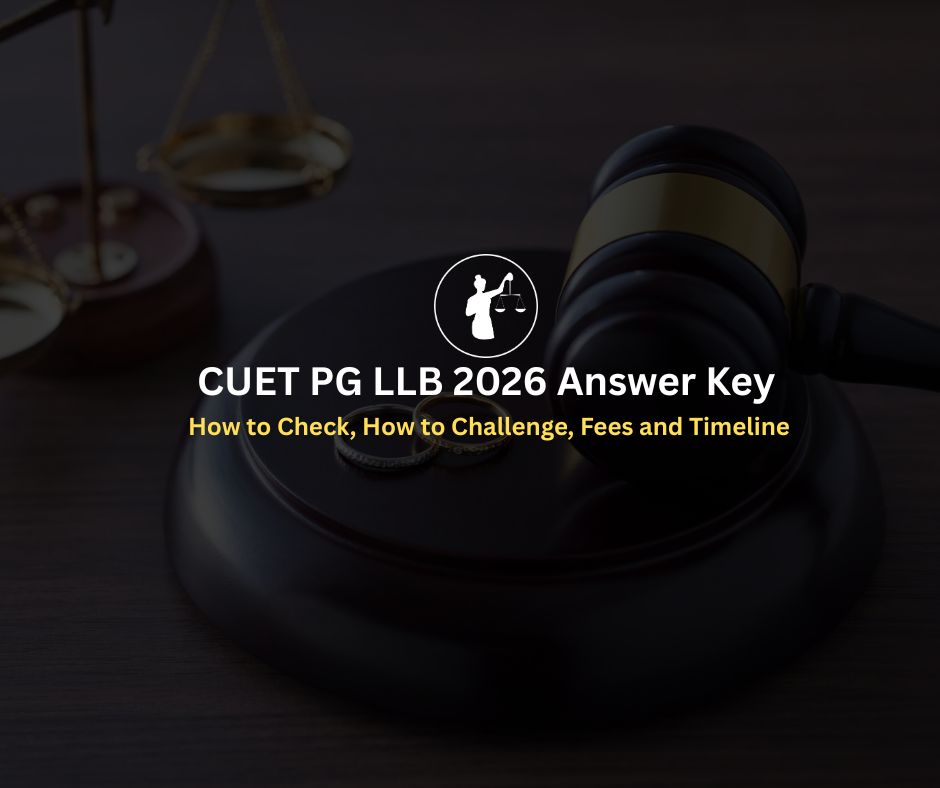CLAT 2026 is one of the most competitive law entrance exams in India, serving as the gateway to prestigious National Law Universities (NLUs). Every year, thousands of aspirants compete for limited seats, making CLAT preparation a crucial step toward securing admission.
However, many students fall prey to common myths and misconceptions about CLAT 2026, which can negatively impact their preparation.
Signup to NLTI for free Mockups, past papers and much more
Some believe that only top students can crack the exam, while others think that coaching is mandatory. These myths create unnecessary stress and often mislead aspirants, preventing them from adopting the right study approach.
In this blog, we will debunk the most common CLAT 2026 myths and provide accurate insights to help students prepare effectively.
Whether you are self-studying or taking coaching, understanding the reality behind these misconceptions will boost your confidence and set you on the right path toward success.
Many students believe that CLAT 2026 is meant only for academically brilliant students who have consistently scored high in school exams. This misconception often discourages average students from even attempting the exam, thinking they don’t stand a chance. However, CLAT is not a test of your past academic performance but of your aptitude, reasoning skills, and exam strategy.
CLAT is designed to evaluate reading comprehension, logical reasoning, legal aptitude, and general awareness, none of which require prior legal knowledge or exceptionally high school marks. What truly makes a difference is consistency, strategy, and practice rather than inherent intelligence.
Consistency is key:
Studying daily with a structured plan is more effective than last-minute cramming.
Mock tests & past papers:
Regularly solving mock tests helps improve accuracy and speed.
Smart time management:
Learning how to attempt the paper efficiently matters more than rote learning.
Logical thinking over memorization:
Understanding concepts and practicing reasoning-based questions is crucial.
A common misconception is that students can’t crack CLAT 2026 without enrolling in expensive coaching programs. Many assume coaching institutes have a secret formula for success.
While coaching can provide guidance and structured preparation, self-study with the right resources can be equally effective. Many students crack CLAT without coaching by following a disciplined study plan and using quality study materials.
Use Quality Study Material:
Reliable books, online resources, and previous year papers are enough to build strong concepts.
Follow a Disciplined Routine:
Set daily targets and stick to a study plan, ensuring regular revision.
Join Online Study Groups:
Engaging with fellow aspirants in discussion forums or online groups can help clarify doubts and stay motivated.
Practice Mock Tests & Analyze Performance:
Regular self-assessment will help identify weak areas and improve your accuracy.
Some aspirants think that success in CLAT 2026 requires marathon study sessions of 10-12 hours daily, leading to stress and burnout.
Success in CLAT depends on efficient learning, practice, and strategy, not on the number of hours studied. Studying for 4-5 focused hours daily with a well-planned approach is more effective than long, unproductive hours.
Follow a Smart Study Plan:
Divide your study sessions into smaller, focused blocks instead of sitting for long hours.
Prioritize Weak Areas:
Instead of studying everything randomly, focus more on sections where you struggle.
Take Regular Breaks:
Short breaks between study sessions help in maintaining concentration.
Stay Consistent:
Studying daily with a structured approach is better than irregular long study hours.
Many students underestimate the General Knowledge (GK) and Current Affairs section, assuming they can cram everything in the last few weeks.
The CLAT GK section requires consistent reading and updates on current affairs. Since topics can be unpredictable, last-minute preparation is not effective.
Read Newspapers Daily:
Regularly read newspapers like The Hindu
or Indian Express to stay updated.
Follow Monthly Current Affairs Compilations:
Use monthly magazines or PDFs to revise important events.
Attempt Daily GK Quizzes:
Small daily quizzes help in reinforcing what you have learned.
Make Short Notes:
Jot down key points from important news stories to revise easily.
A common misconception is that CLAT has a fixed passing score, leading to unnecessary speculation about the required marks.
CLAT cut-offs change annually based on factors like paper difficulty, number of applicants, and seat availability. Instead of focusing on a fixed score, aim for maximum accuracy and high attempts.
Focus on Improving Your Score Instead of Guessing Cut-offs:
Attempt as many questions as possible accurately to secure a high rank.
Solve Past Year Papers:
This helps in understanding the difficulty trend and expected score range.
Analyze Mock Test Scores:
Work on improving weak areas to consistently boost your score.
Stay Updated with Exam Analysis:
After the exam, review expert analysis to understand trends.
Some students believe that solving past year papers alone is enough for CLAT success.
While previous year papers are valuable, CLAT questions often change in style and complexity. Relying only on past papers may leave you unprepared for newer question formats.
Use a Mix of Study Resources:
Supplement past papers with topic-wise practice books and mock tests.
Take Sectional Tests:
Focusing on individual sections helps in mastering weak areas.
Stay Updated with Changing Trends:
Follow expert analysis on how CLAT is evolving each year.
Improve Speed & Accuracy:
Regular practice beyond past papers enhances efficiency.
Many aspirants think that legal reasoning requires prior law knowledge, making them hesitant to attempt this section.
The legal reasoning section evaluates logical thinking, not memorization of laws. Questions are designed to assess how well students apply given principles to different situations.
Understand Legal Principles:
Learn basic legal concepts like contracts, torts, and constitutional law.
Practice Logical Application:
Solve case-based questions to develop analytical skills.
Avoid Prior Assumptions:
Answer questions based only on the given passage, not external knowledge.
Solve Mock Tests & Previous Papers:
Regular practice builds confidence in legal reasoning.
Many students fear negative marking and hesitate to attempt questions, which affects their total score.
While CLAT 2026 has negative marking, intelligent guessing and elimination techniques can help maximize scores.
Use the Elimination Method:
Remove incorrect answer choices to increase the probability of getting the right answer.
Attempt Questions with High Accuracy:
Focus on accuracy rather than attempting everything blindly.
Practice Intelligent Guessing:
Learn to identify close answer choices and make informed guesses.
Take Timed Mocks:
Mock tests help in understanding how to balance accuracy with attempts.
There are many misconceptions about CLAT 2026, but smart preparation, consistency, and practice are the keys to success.
Avoid falling for these myths and focus on a well-structured approach that includes regular study, mock tests, and strategic planning. With the right mindset, any aspirant can crack CLAT and secure a seat in a top NLU.





